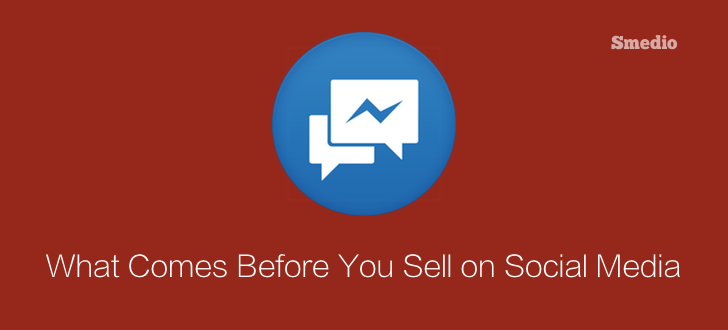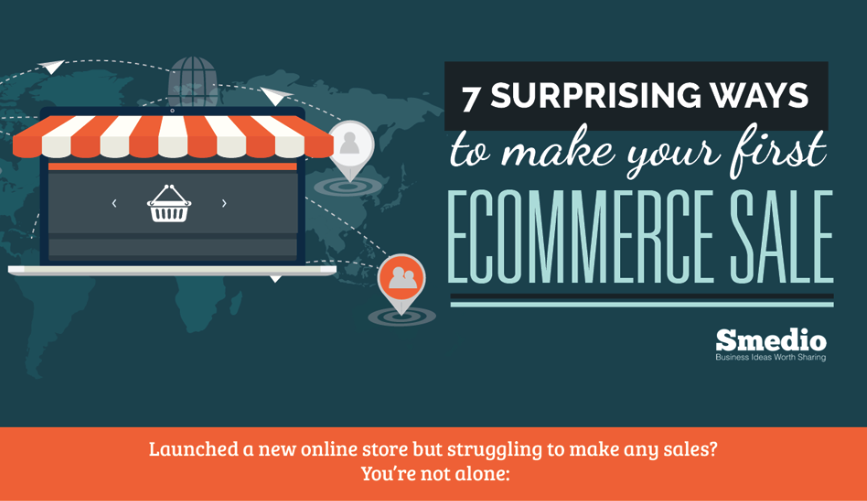Do you “dare” to sell on social media?
I am sure you would. You are an entrepreneur. You’ve jumped the hoop already. You’ve learnt to face your fears square. On social media, however, it’s not a matter of how intrepid, brash, and reckless you can be. That won’t guarantee “sales”.
Once upon a time, social media was a vast alien land and you’d have to feel your way into it. Today, research is astoundingly clear. As Olsy Sorokina of HootSuite points out, the wrong social media strategy can cost you business (irrespective of the size and fame of your brand). Brian Solis, principal analyst of Altimeter Group, seconds the opinion that “social media isn’t for sales, but sales do happen”.
Don’t get me wrong here. I am not saying that you shouldn’t be on social media to expect sales (I agree with Brian and sales will happen, sooner or later). It’s just that the strategy that works is a wee bit mushy, for lack of a better word. In other words, there’s “social” in social media as Jay Baer of Convince and Convert puts it straight.
So, the point is: do expect to sell. All that you have to do is to work your way up to the sale just like it was in the good old days of hustling and selling on the streets minus the harsh sun, endless wait time, and pushing your way through.
Today, the hard work is slightly different. Here’s what you need to do before you dare sell on social media:
Build context with a sound content marketing strategy
Your paid advertisements will plateau and stagnate without organic efforts such as blogging, social media, email marketing, and other methods available.
You need context to forge ahead. You get context from regular publishing guided by a strong content marketing strategy. This should have been obvious by now, but it isn’t. Not for many businesses, at least.
Take social media; not every business out there is on social yet. Those that do swear by it, there are different parties to each social network.
Different opinions exist, and hence different results show up.
Let’s take B2B for instance: The fourth annual B2B content Marketing 2014 Benchmark trends in North America Report reveals that large companies (1000+ employees) believe that YouTube is the most important (and relevant) after LinkedIn. Meanwhile, over 49% of small companies consider SlideShare as an effective medium while only 38% of large companies share that opinion about SlideShare.
The trick to succeed on social media is this: you have to know what kind of content engages your audience. Then, deliver it continuously.
Context leads to meaningful engagement
Starting from the point above, your social engagement is an extension of your content strategy. Share what you publish. Then, field conversations that’ll happen due to your sharing. Share others’ content and then field some more conversations. Meanwhile, have some conversations.
This, right here, is the beginning of meaningful engagement on social media.
Mikal Belicove on American Express’s Open Forum takes a look at how Starbucks Builds Meaningful Customer Engagement via Social Media. You’ll realize that when it comes to social:
- People matter more than marketing.
- You connect with real people on social media and not with handles and accounts.
- Social media is only a part of a larger digital marketing strategy.
- Authenticity goes a long way.
- Coalitions, partnerships, friends, acquaintances, and even employees could be expected results due to your social media engagement.
- Social media gives you amplification.
What’s your story?
We love stories. We’ve always been that way for centuries now. Stories are sticky, inspiring, motivating, and completely engaging. They are attractive and they’ll suck you right in, to say the least.
Before you get on social media, come up with a story. In fact, “coming up with a story” is so important that Michael E. Gerber — author of the popular E-myth series of books – dedicated an entire chapter titled “The Storyteller and his Purpose” in his new book Awakening the Entrepreneur Within.
Come up with a story. There has to be a reason why your business exists. There ought to be a singular mission your company is on. There could be a burning problem you are setting out to solve.
There’s a reason why Seth Godin, Guy Kawasaki, Jack Welsh, Steve Jobs, and many others swear by storytelling (along with any 5-year old), according to this Forbes.com feature. Shane Snow of HubSpot insists that Story telling is also going to be the biggest, in-demand skill in the next few years.
Since you aren’t a Stephen Hawking, you can at least do this to master the art of storytelling on social media and for content marketing:
- Get personal. Reveal information. Make the story more interesting.
- Just “any” story won’t do. The story should invoke emotions like fear, desire, anger, or happiness. It’s about moving people, you see?
- A story is a journey. Your CTA is the destination. Draw these lines straight.
Find that purpose. Narrate the story. Join the social party.
How many people do you know?
Knowing people is an endless journey. Your sale is somewhere along the way in the process of getting to know others. Agreed that you are in business, and the point of business is to make a sale and shore up a tidy profit.
On social media – and for digital marketing in general – it’s not about pitching anymore; it’s about socializing.
Hence, social selling came to be. No matter what you’d call it, the fact remains that the more people know, trust, engage, and remember you, it’s more likely they’d buy from you.
Just to get people to take notice, like, follow, and then become your brand evangelists, there’s a lot that you’d have to do, starting with your company culture and disposition to social media as Douglas Idugboe pointed out earlier in a post on making company culture a tool for social media.
How many people do you reach out to in a day? How much of an impact are you making with your digital presence? What do you give away in terms of help, information, insights, etc.?
I ask that because all this has a correlation to your sales numbers.
You are still in business. But how do you go about it on social media? What’s your modus operandi? Share your thoughts with us.








